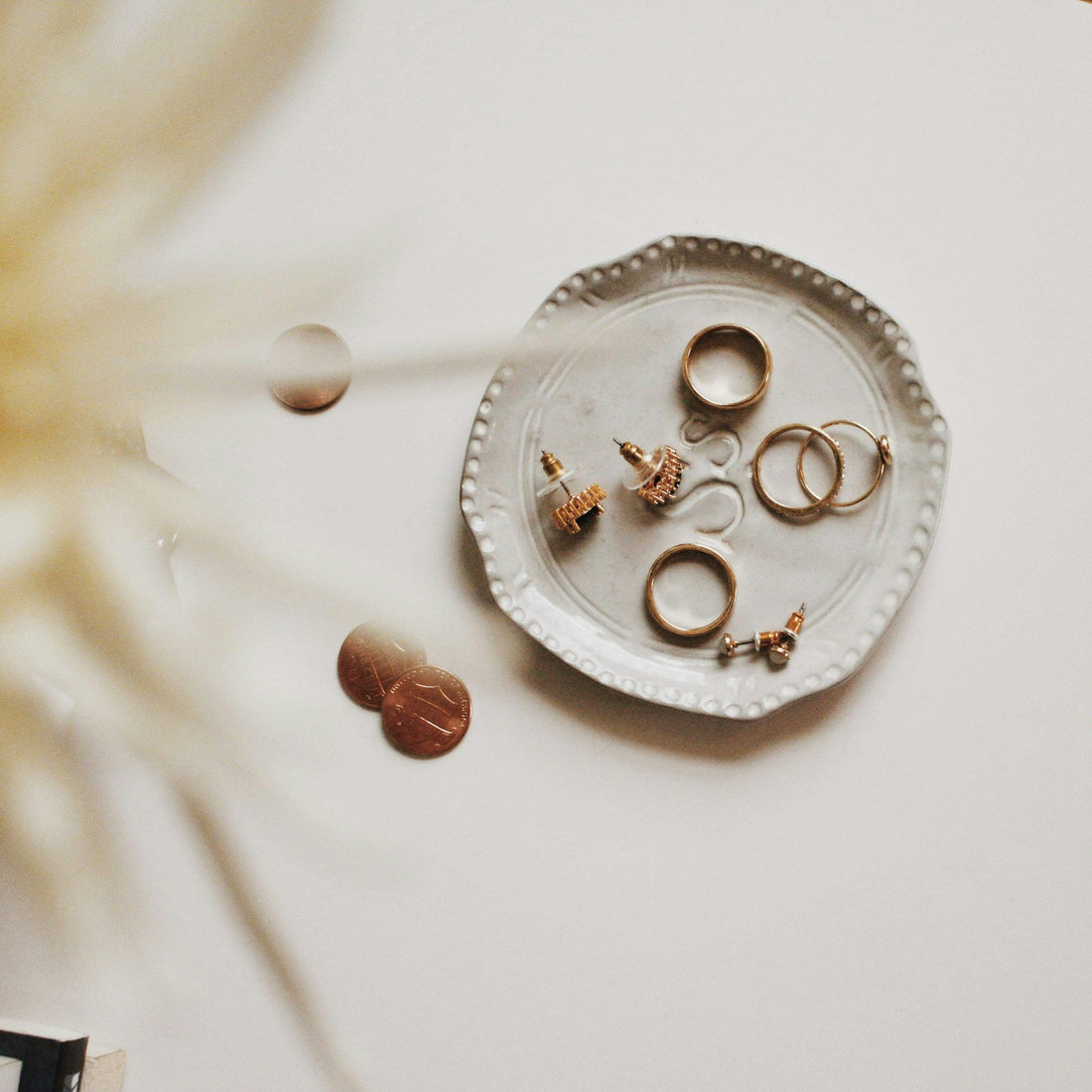
Ultimate Guide to Buying and Caring for Jewelry
Himanshu SainiJewelry isn't just an accessory—it’s an expression of personal style, a mark of special moments, and sometimes, a treasured heirloom. Whether you’re buying a statement piece to elevate your wardrobe or investing in fine jewelry for future generations, knowing how to choose, wear, and care for your jewelry is essential.
In this comprehensive guide, we’ll walk you through everything you need to know about buying, styling, and preserving your jewelry. Whether you’re a first-time buyer or a seasoned collector, these tips will help you make smart, stylish, and lasting decisions.
1. How to Choose the Right Jewelry for You
Before you purchase jewelry, it’s important to understand your own personal style, preferences, and needs. Here’s how to make sure you’re choosing pieces you’ll love and wear often:
A. Understand Your Skin Tone
Believe it or not, your skin tone plays a huge role in how jewelry looks on you.
- Cool skin tones: Silver, platinum, and white gold tend to look best. Gemstones like sapphires, emeralds, and amethysts complement cool undertones.
- Warm skin tones: Yellow gold, copper, and brass are flattering. Gemstones like citrine, turquoise, and garnet work beautifully.
- Neutral tones: Lucky you! You can pull off both cool and warm metals and a wide variety of gemstones.
B. Consider Your Lifestyle
If you’re someone who works with your hands a lot, delicate rings with high settings might not be practical for everyday wear. Consider durable metals like platinum or titanium and opt for secure settings.
C. Pick Versatile Pieces First
Start with classic staples: a simple pendant necklace, small hoop or stud earrings, a delicate bracelet, and a timeless ring. These can be worn every day and mixed with statement pieces later.
2. Types of Jewelry: Materials & What They Mean
Jewelry comes in many different materials, each with its own qualities and price points. Here’s a quick breakdown:
Precious Metals
- Gold (Yellow, White, Rose): Versatile and classic. Pay attention to karats—24K is pure gold but soft, while 14K and 18K are mixed with other metals for durability.
- Platinum: Extremely durable and hypoallergenic, but more expensive.
- Silver: Affordable and versatile, though it tarnishes more easily than other metals.
Gemstones
- Precious Stones: Diamonds, rubies, sapphires, emeralds—high value, often used in fine jewelry.
- Semi-Precious Stones: Amethyst, citrine, garnet, etc.—offer color and variety at a more accessible price point.
- Synthetic Stones: Lab-grown diamonds and gems—eco-friendly and often more affordable without sacrificing beauty.
3. Essential Tips for Buying Jewelry
A. Set a Budget
Know your price range before you start shopping. Fine jewelry can be an investment, but there are also plenty of affordable, high-quality pieces.
B. Buy from Reputable Sellers
Check reviews, certifications (especially for diamonds and precious stones), and return policies. If you’re buying fine jewelry, make sure it comes with proper certification (GIA for diamonds, for example).
C. Understand the 4Cs of Diamonds
If you’re buying diamond jewelry:
- Cut: How well the diamond is cut (affects sparkle)
- Color: The less color, the higher the grade
- Clarity: Fewer flaws (inclusions) mean higher value
- Carat: Weight (size) of the diamond
D. Ask About Warranties & Repairs
Good jewelry often comes with warranties or free cleaning services. Ask your jeweler about these when you make a purchase.
4. How to Care for Your Jewelry (And Make It Last Forever)
Your jewelry deserves love and care. Here’s how to keep it shining:
A. Daily Care
- Remove rings when washing hands, applying lotion, or cleaning.
- Store pieces separately to avoid scratches.
- Wipe jewelry with a soft cloth after wearing to remove oils.
B. Deep Cleaning
- Gold & Platinum: Soak in warm water with mild soap. Use a soft toothbrush to gently clean.
- Silver: Use a silver polishing cloth or cleaner to prevent tarnishing.
- Gemstones: Each stone requires different care. Diamonds can handle gentle brushing; softer stones like opals should only be wiped with a damp cloth.
C. Regular Checkups
Every few months, check clasps, prongs, and settings to ensure they’re secure. Visit a professional jeweler for cleaning and inspections once or twice a year.
5. Jewelry Trends to Know in 2025
Stay ahead of the curve with these current jewelry trends:
A. Chunky Chains
Oversized chain necklaces and bracelets are making a big statement this year.
B. Layered Necklaces
Delicate chains, pendants, and chokers worn together add a modern touch.
C. Personalized Jewelry
Name necklaces, initials, and birthstone rings let you tell your story through jewelry.
D. Sustainable & Ethical Pieces
Lab-grown diamonds, recycled metals, and brands with fair labor practices are in high demand.
E. Bold Earrings
From hoops to sculptural ear cuffs, statement earrings are back in fashion.
6. Jewelry Styling Tips for Every Occasion
A. Everyday Look
Keep it simple: Small hoops or studs, a delicate chain, and a bracelet or watch.
B. Office Chic
Go for elegance: Pearl earrings, a sleek bangle, and a minimalist ring.
C. Party-Ready
Make a statement: Bold cocktail rings, layered necklaces, and chandelier earrings.
D. Weddings & Special Events
Opt for timeless glamour: Diamond or gemstone pieces, heirloom jewelry, and coordinated sets.
7. Jewelry as an Investment
Fine jewelry isn’t just beautiful—it can be a smart investment.
- Gold and Platinum hold value over time.
- Vintage & Antique Pieces often increase in worth.
- Diamonds retain value if they are certified and of high quality.
Conclusion: Jewelry That Works for You
Whether you’re buying jewelry to treat yourself, celebrate a milestone, or pass something special down through generations, making informed choices is key. Understand your style, choose quality materials, and take good care of your pieces. Jewelry isn’t just decoration—it’s personal, sentimental, and, with the right care, timeless.
